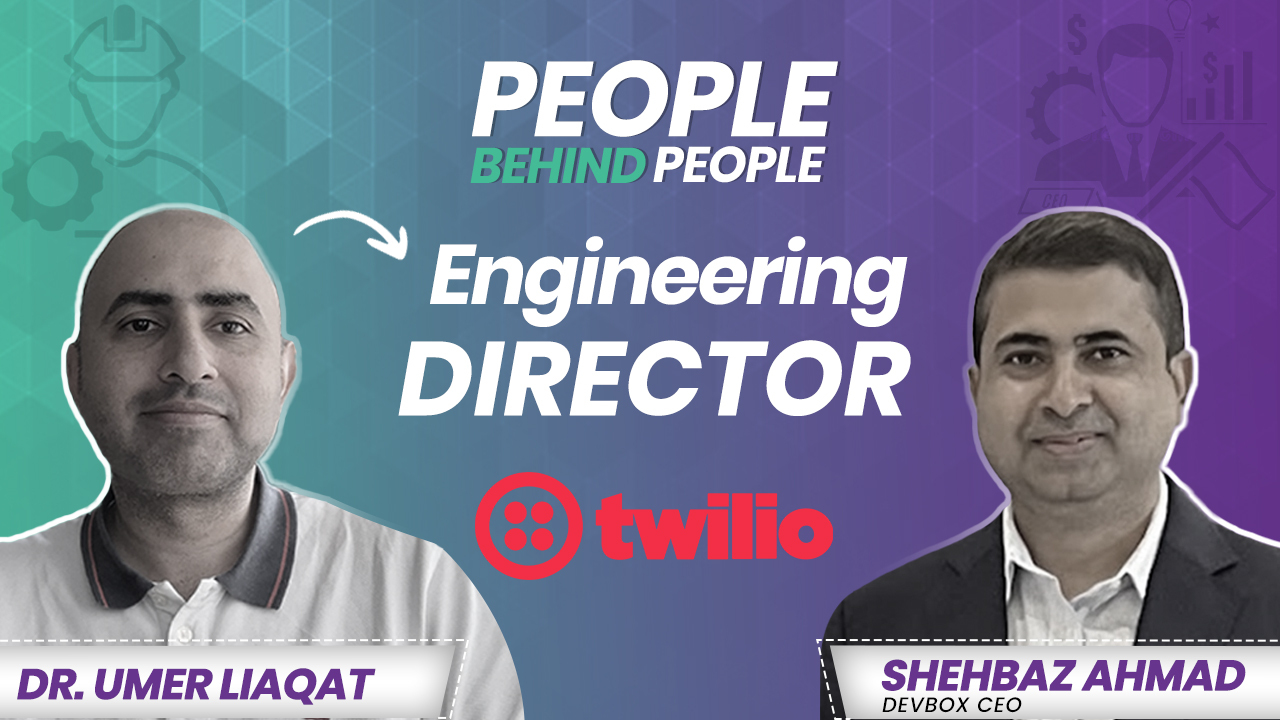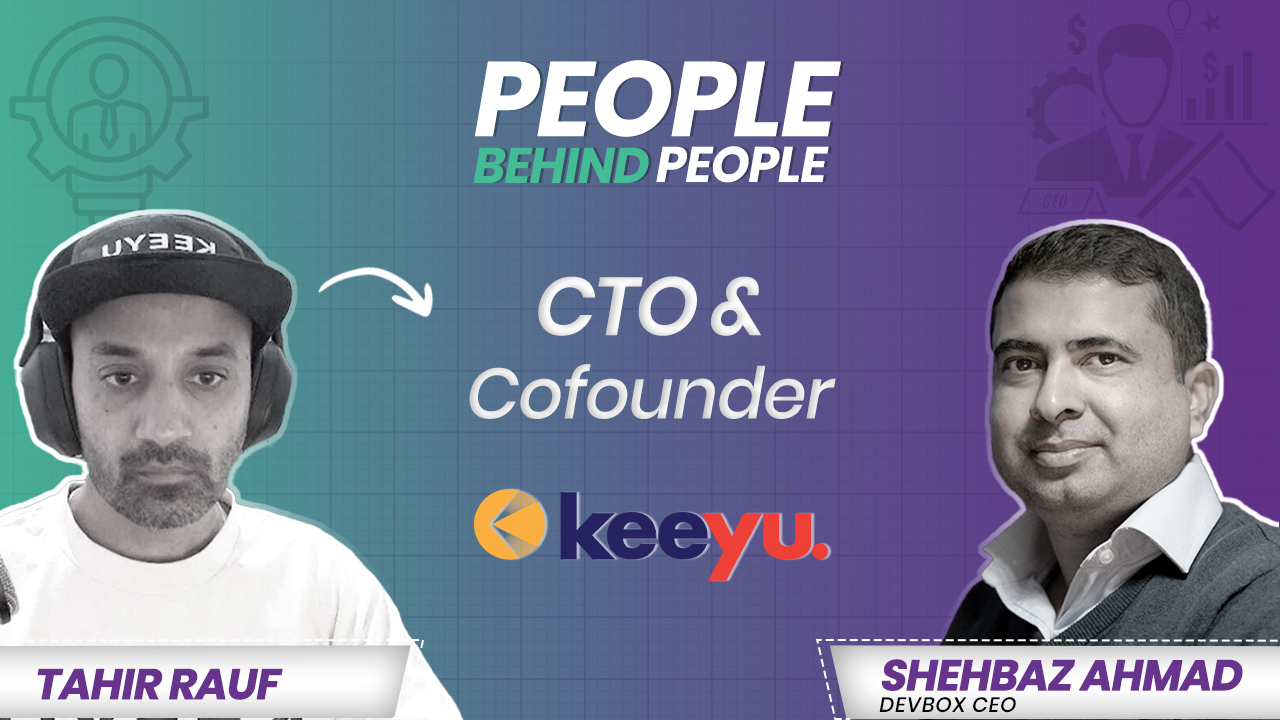In the latest episode of People Behind People, Shehbaz Ahmad, CEO of Devbox Technologies, sat down with Dr. Umer Liaqat, now an Engineering Manager at Twilio, to explore a journey that bridges continents, industries, and philosophies. From the halls of PUCIT in Lahore to leading global engineering teams in Madrid, Umer’s story embodies resilience, curiosity, and a relentless drive to learn.
From Humble Beginnings to Global Horizons
Dr. Liaqat’s story began like many of ours, shaped by circumstance, curiosity, and a few closed doors that opened unexpected ones. Initially passionate about electrical engineering, he found his way into computer science at PUCIT, a decision that would define the course of his life.
His first professional role at Techlogix, one of Pakistan’s most respected technology firms, taught him that engineering is as much about people as it is about code. As Umer notes,
“The best engineers aren’t just great coders, they’re great communicators.”
These early experiences cemented his belief that collaboration and clarity matter as much as technical skill.
Breaking Comfort Zones – A Scholarship That Changed Everything
Winning the prestigious Erasmus Mundus Scholarship proved to be a turning point. It took Umer from Pakistan to Spain and Germany, where he completed his Master’s in Computational Logic while working at SAP Research.
This phase taught him one of his most powerful lessons:
“You grow faster when you step outside your comfort zone.”
Working abroad not only diversified his skills but also shaped his worldview, showing how culture, process, and people dynamics influence engineering at scale.
Engineering Leadership: Scaling People, Not Just Systems
At Twilio, Dr. Liaqat leads teams responsible for Event Streams and Webhooks, services that handle tens of billions of requests per week. But his biggest insight isn’t about throughput, it’s about reliability and leadership.
He explains,
“Scaling impact means scaling people.”
His approach to leadership emphasises clarity, empowerment, and empathy. Rather than managing, he believes in multiplying impact, building systems and teams that perform effectively even when he’s not in the room.
To achieve this, he practises what he calls situational leadership, understanding whether a team member needs coaching, confidence, or autonomy.
Reliability, Observability, and the Art of Staying Invisible
When asked about Twilio’s massive real-time infrastructure, Umer offers a fascinating principle:
“If no one knows you exist, you’re doing a great job.”
Reliability, he says, means staying invisible, ensuring the systems perform so seamlessly that users never notice them. His teams achieve this through observability, gradual rollouts, and the four golden signals, latency, traffic, errors, and saturation.
AI and the Future of Engineering
No modern discussion is complete without AI. Both Shehbaz and Umer shared how AI is reshaping engineering workflows from incident response and observability to productivity and automation.
At Twilio, AI assists engineers during incidents by summarising conversations and logs, enabling faster resolutions. As Umer explains,
“Seconds matter when billions of events are at stake.”
Yet, both agreed that human judgment remains irreplaceable. AI is a tool that augments productivity but cannot replicate human intuition, empathy, or leadership.
Building Culture Across Distributed Teams
Dr. Liaqat’s framework for engineering culture is built on three pillars:
- Clarity through strong documentation and written context.
- Consistency through predictable processes like blameless post-mortems.
- Connection through celebrating wins and fostering psychological safety.
He believes that empathy scales better than micromanagement, and that distributed teams thrive when trust replaces control.
Leadership Lessons Worth Sharing
Umer summarised his leadership philosophy into three principles:
- Give clarity, not control people thrive when they understand why, not just what.
- Protect focus leadership is as much about what you choose not to do.
- Lead by example reliability, calmness, and integrity are contagious traits.
Final Reflections – Advice to Young Engineers
In closing, Dr. Liaqat shared heartfelt advice for aspiring engineers:
“Have bigger goals. Surround yourself with people who lift you higher.
Don’t settle early. Follow opportunities that stretch your comfort zone.”
Both guests agreed that success is a combination of exposure, curiosity, and courage. Whether in Lahore or Madrid, these values transcend borders.
Closing Note
This conversation was not just about career progression but about the mindset of lifelong learning, how to navigate uncertainty, lead with empathy, and keep pushing boundaries.
Watch the full episode of People Behind People with Dr. Umer Liaqat on YouTube below.

